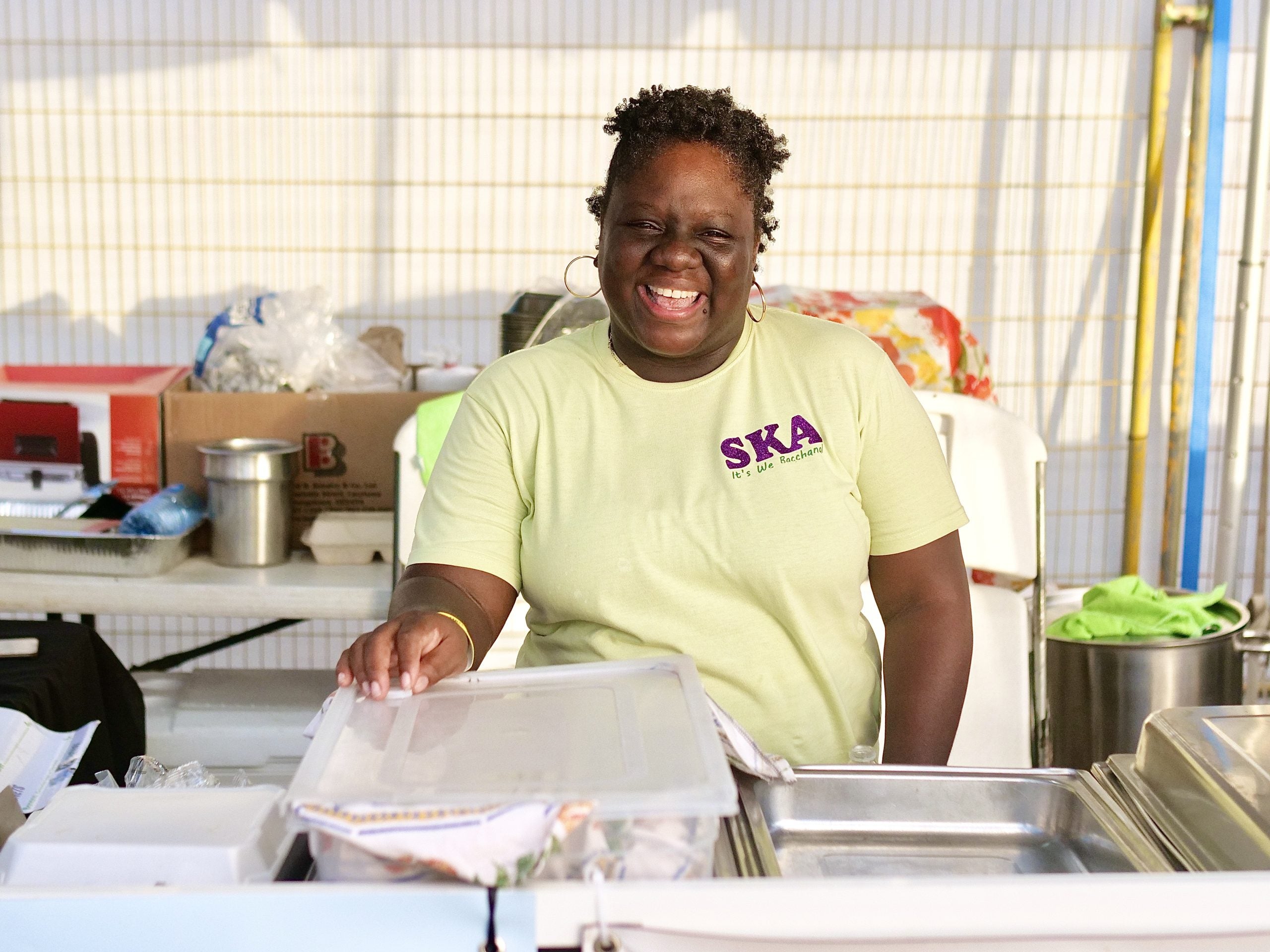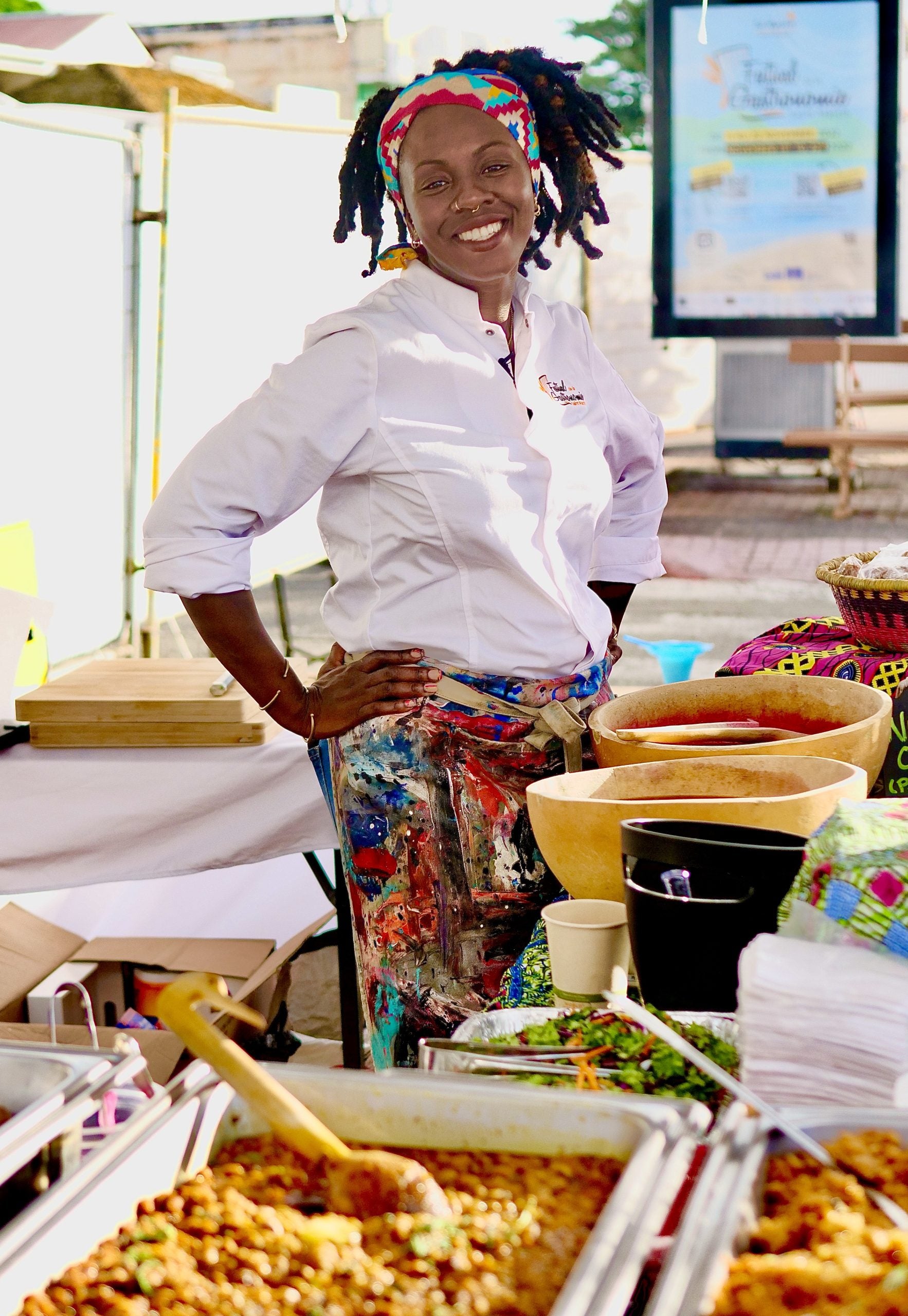
Marigot, St.Martin — Food is a universal language. That simple yet special message seemed to be at the center of the annual Gastronomy Festival Of Saint-Martin.
Over the past two years, the annual festival curated has featured 11 food-filled days of cooking demonstrations, mixology competitions, barbecue contests, and a competition among local restaurants to cook up a specialty tasting menu using a selected star ingredient.
During the first year of the festival in 2021, that ingredient was tamarind. In 2022, it was plantain, where foodies enjoyed creative culinary creations such as plantain samosas, plantain ceviche, plantain johnny cakes, and plantain cups with saltfish and crab. This year, the star ingredient will be sorrel, a type of Hibiscus flower that can be used to make jams, syrups, and a common favorite, juice.
The festival’s Culinary Village, held at the Marigot seaport, is a standout experience where local and international chefs serve gourmet dishes, and guests can sample a wide variety of food from over thirty different places. Think part restaurant pop-up, part food truck fest with over thirty places to choose from, and a side of live entertainment featuring high-energy performances of zouk, soca, and reggae music.
Chefs from countries such as Barbados, France, Ghana, Brazil, Haiti, the United States, and Saint-Martin come to share their cuisine and celebrate the shared culinary heritage of the African Diaspora. They highlight the diversity and similarities in their dishes, emphasizing the connection between people through food.

“St. Martin cuisine is diverse, innovative, tasty, lovely, tropical, says Erica Stevens of SKA, a cultural association on the island that hosts workshops and has a popular band during the carnival season.
“Our main activity here is showcasing the johnny cake through johnny cake workshops,” she said, noting that it’s one of the most important things to eat on the island of St. Martin with some history behind it.
“It’s one of those dishes that could carry for a long time, over several days, back in the old days and for travel days when on a journey; that’s why we also call it journey cake. It tells a part of our story, so it’s important to bring the johnny cake to life for this festival,” says Stevens.
Chef Maame Boakye brought the flavors of Ghana to the festival when she served up a dish known as red red, made with black-eyed peas cooked in palm oil and with tomatoes.
“You know, people normally go straight for the Jollof when they hear about Ghana, but I wanted to highlight other dishes also that are just as good and popular in Ghana but also that show our similarities as a people,” she explains. Chef Maame served the dish with plantain fritters known as kaklo and sobolo, a hibiscus flower drink called bisap in parts of Africa or sorrel as it’s popularly called in the Caribbean.

“I viewed this experience after eating at different restaurants, having people try my dishes, and trying the others. I realize the connection, from the rice to the drinks, a lot of the dishes are very similar, and it’s a reminder that we all are connected,” says Boakye.
For Chef Jean Marie Jackson, contributing to the variety of culinary experiences at Culinary Village was exciting as he brought a taste of Haiti to the food festival. The long lines for dishes such as griot, soup joumou, and Haitian legume with crab and beef showed that the cuisine was a hit, and he looks forward to being a part of this year’s festival in November.
“I am representing Haitian food. But I also represent the Caribbean, and the most important thing we want to do is let the Diaspora know that we exist and are unique. We have a lot to offer here on this friendly island,” says Jackson, who was born in Haiti and has called Saint-Martin home for many years.

Celebrity chef Renee Blackman infuses her Barbadian heritage into her dishes, emphasizing the importance of preserving and promoting the natural flavors, spices, and culinary traditions passed down through generations.
“There are so many great things that we grew up eating consistently, like plantain, and at that time, we didn’t realize how it connected us or that it could start a conversation or be cooked so many ways,” Blackman said. “So, now gotta give credit where credit is due and those natural flavors and spices that our ancestors grew up making… it’s important that we bring it to the forefront,” she added.
Overall, this experience celebrates the universal language of food, fosters cultural exchange, and connects people through their shared culinary experiences. The third edition of the Gastronomy Festival Of Saint-Martin takes place from November 11-22nd.








